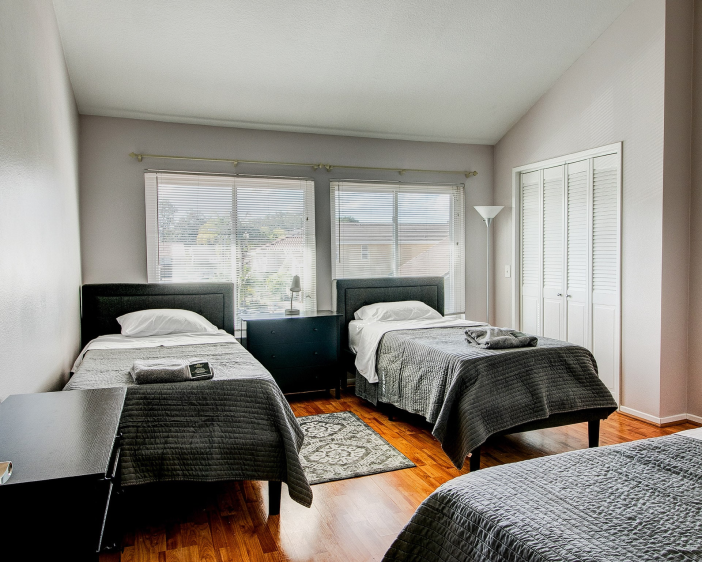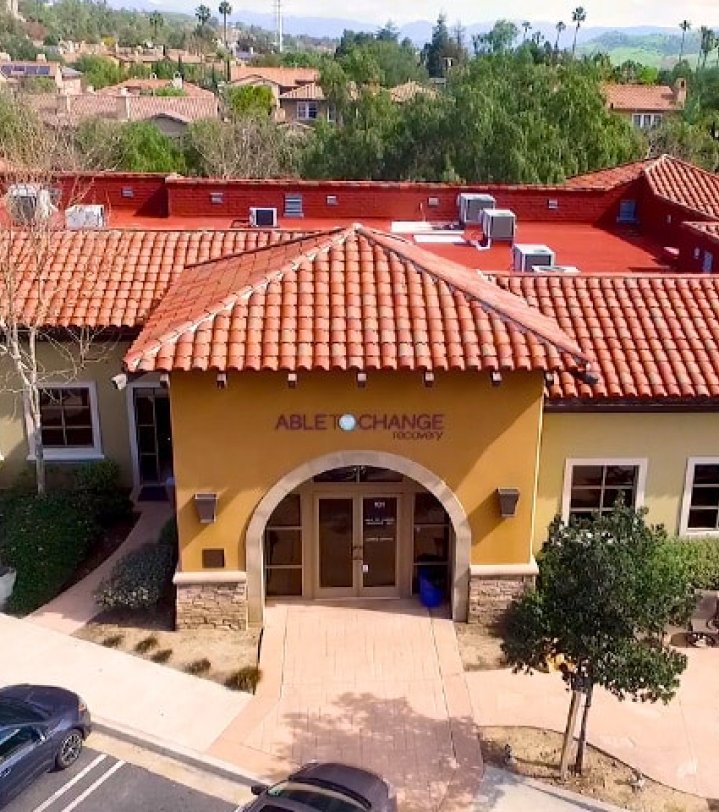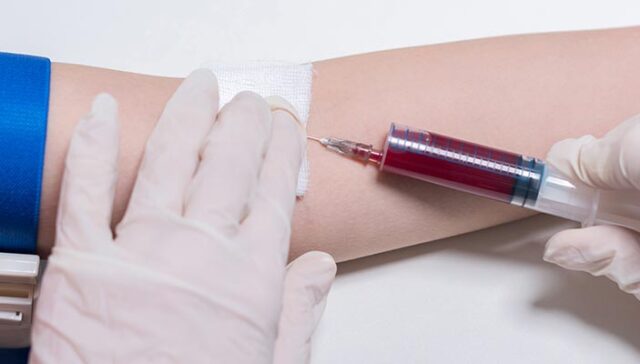
The Premier Drug & Alcohol Rehab in Orange County
Comprehensive Holistic Care For Substance Use Disorder & Mental Health Conditions.
Most Insurance Accepted
In-network provider with most major carriers to ensure treatment is accessible.
Licensed and Accredited
Able to Change is accredited with CARF, showing all treatment provided meets or exceeds their rigorous requirements

Family Founded
A family-founded organization with a client-first and community-focused philosophy
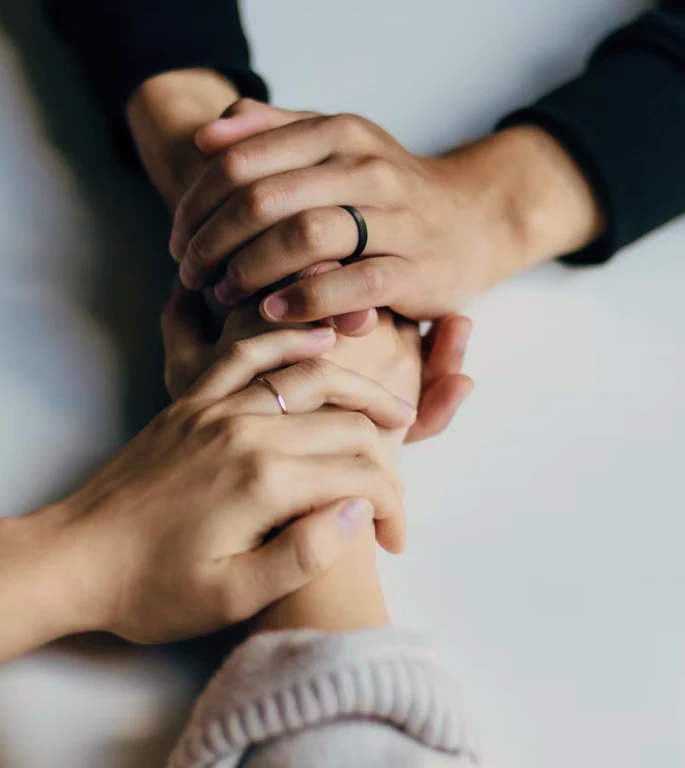


Meeting Clients Where They Are & Helping Them
Become Who They Were Meant To Be
Facing substance use or mental health challenges can leave one feeling overwhelmed and isolated. The desire for safety, success, and purpose are within reach, but they can be difficult to grasp alone. At Able To Change Recovery, no one walks this journey alone. We’ll walk together every step of the way with practical support and hopeful motivation.
We are a family-founded organization with a client-first and community-focused philosophy, openly showing acceptance and compassion to every person we help. Everyone here should feel like they belong and like they’re part of the family. We take a deeply personal approach to working with each individual and are eager to provide the treatment, tools, and support needed for a life defined by healing and potential.
How We Can Help
Substance use disorder and alcohol addiction continue to present genuine heartbreak in our communities. We believe recovery is possible for everyone. No matter the challenges, our team is here to help forge a path toward healing and balance.
Recent survey data from the Substance Abuse and Mental Health Administration reveals that approximately 48.7 million people had a substance use disorder, including over 29 million people with alcohol use disorder. [1]
Primary mental health challenges also present a disheartening picture. Of all U.S. adults, more than 19% had an anxiety disorder in the last year, over 4% experienced bipolar disorder at some time in their lives, and the lifetime prevalence of PTSD was measured at 6.8%. [2][3][4]
Despite these numbers, we confidently believe that every person’s journey toward healing is worth pursuing. With primary pathways for both mental health and substance use disorders as well as co-occurring disorders, Able To Change Recovery can offer personalized care to make sure individual needs are met and that every client feels supported and understood. This is a judgment-free zone and a safe space for healing.
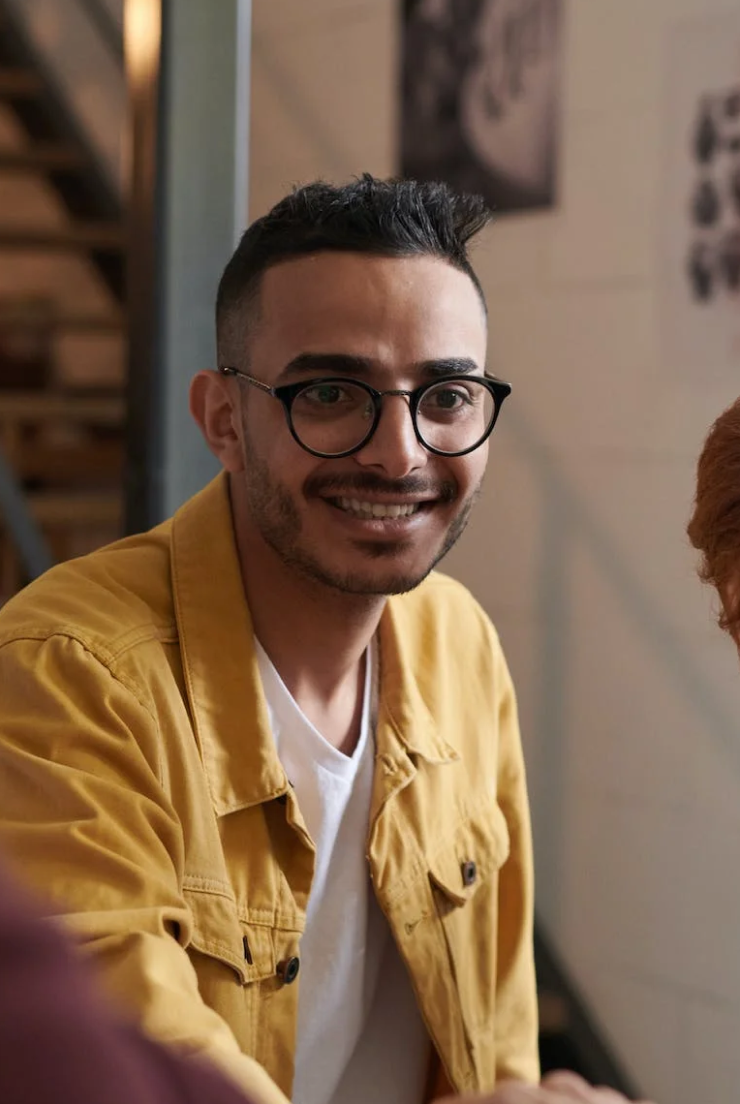
Able To Change Recovery
Our trauma-informed approach to care prioritizes empathy and practical assistance.
We aim for long-term recovery in every area of life. With flexible treatment programs and a high staff-to-client ratio, this is where clients come to be seen, heard, and seamlessly guided through healing. The goal of treatment is not only to help facilitate sobriety or to cultivate coping strategies for sustained recovery, although those are hallmarks of the treatment experience. The real desired outcome is to help clients establish a safe and healthy baseline for a successful life.
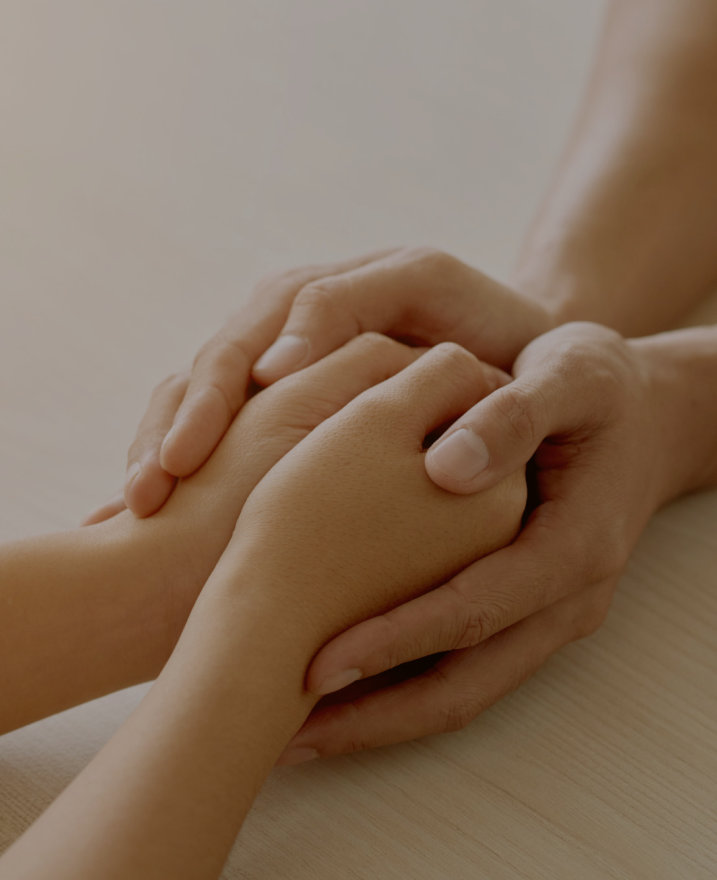
Treating substance use
Substance Use Disorders
- Alcoholism / Alcohol Use Disorder
- Opioid Use Disorder
- Inhalant Addiction
- Methamphetamine Addiction
- Barbiturate Addiction
- Adderall Addiction
- Kratom Addiction
- Heroin Addiction
- Marijuana Addiction
- Hallucinogen Addiction
- Valium Addiction
- Crack Cocaine Addiction

Mental Health Disorders
- Depression
- Anxiety
- Attention Deficit Disorder / Attention Deficit Hyperactivity Disorder (ADD/ADHD)
- Trauma / Post-Traumatic Stress Disorder (PTSD)
- Bipolar
- Dual Diagnosis
- Personality Disorders
- Psychotic Disorders
- Obsessive Compulsive Disorder (OCD)

Mental Health & Addiction Treatment Programs
In-Network Treatment Center | Orange County Drug Rehab
Help comes in many forms, but at Able To Change Recovery, it involves collaborative assistance and evidence-based treatment. Our wide array of therapy modalities was selected based on proven effectiveness and the highest potential for positive outcomes across the board. Every client will participate in a bio-psycho-social assessment to ensure their treatment plan is tailored to the recovery journey that is best for them. No matter where clients fall on the continuum of care, they will always receive the highest levels of attentive care and specialized drug addiction treatment.
Levels of Care
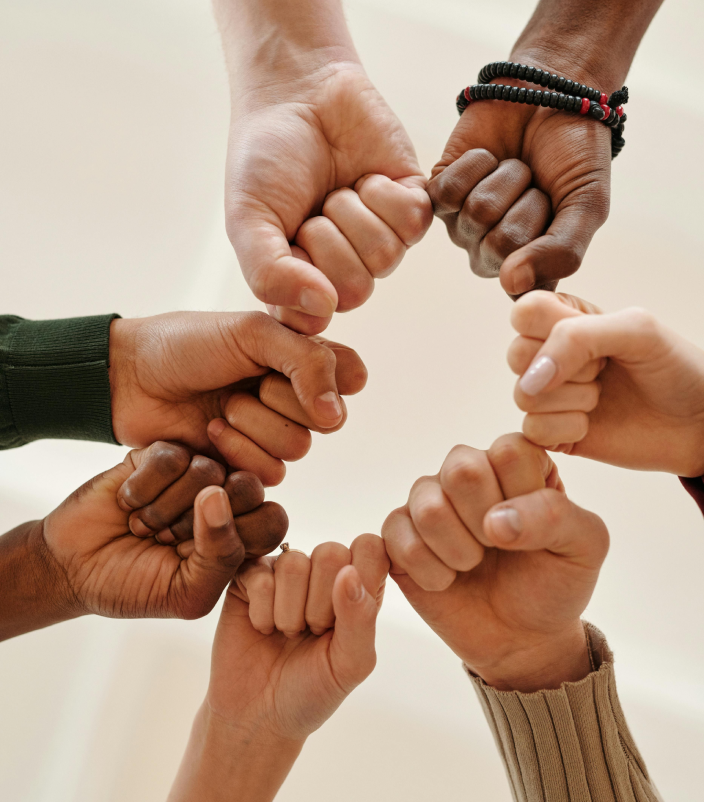
Intensive Outpatient Program (IOP)
Our IOP program empowers clients to reintegrate back into daily living without sacrificing intensive care. Operating several days a week, clients can return to daily work, home, or school routines and continue their treatment.
Learn More
Partial Hospitalization Program (PHP)
This primary level of outpatient care is for both mental health and substance use disorders. It offers daily intervention, support, and engagement and is where clients build a foundation for a life with greater balance and free of substance use.
Learn More
Extended Care Supportive Housing
Our extended care sober living homes offer a safe and distraction-free space to begin or continue recovery while remaining deeply connected to the Able To Change community.
Learn More
Holistic Therapy Modalities
Each individualized plan will determine which therapies are a good fit for each client and what timeline is most appropriate to ensure all concerns are addressed.
Cognitive Behavioral Therapy (CBT)
Motivational Interviewing
Contingency Management
Dialectical Behavior Therapy (DBT)
12-Step Facilitation Therapy
Acceptance and Commitment Therapy (ACT)
Mindfulness-Based Therapies
Interpersonal Therapy
Psychodynamic Therapy
Play Therapy
Art Therapy
Eye Movement Desensitization and Reprocessing (EMDR)
Holistic Therapy
Individual Therapy
Group Therapy
Family Therapy
Trauma Informed Care
If You’re Willing, We’re Able
Stories of Triumph and Healing
My experience at Clear Behavioral Health was amazing! Life changing. It really was first class. The staff was very professional and helpful. Everyone is super nice and friendly. They treat you with respect and kindness. Their integrity is of the highest level. I worked for Trader Joes for 28 years and we were proud of the quality of customer service we provided. I can for sure say that Clear Behavioral Health has the highest level of customer service. Ten stars for sure! It feels so wonderful to be on the receiving end.Thank you everyone for such a wonderful journey.
Mark Aguilar
ClientI am incredibly thankful for the exceptional work that Sheriff and his team delivered. They achieved a settlement that exceeded my expectations. the entire process was smooth, and Sheriff guided me every step of the way. Initially, I wasn't sure if I had a valid claim: I simply wanted to ensure that the employer was held accountable for their unfair treatment of employees. At the very least pick up the phone and have a conversation with Sheriff. He will happily and patiently educate you on the process.
Kelli E
ClientMy name is Austin I was a client here. The staff is amazing and will go to lengths to get your needs met. Any problem I had got resolved that day! I’ve been to MANY MANY treatment centers and this is the best one. Therapist Mike is AMAZING and I loved his approach. House managers are amazing as well. Would recommend to anyone.
Ace TrippyPrince
ClientThis place is absolutely amazing! I’ve been sober now for almost 3 years and it’s largely due to A2C! If you’re ready to change your life, this is the place!
Brooks Kaufman
ClientI attended this program right after my residential as a step down to continue my program. It was very beneficial in my recovery. The staff was responsive to my needs and respected my goals. I was given great feedback in how to do so. The sober living was clean and the people were respectful of the boundaries one sets for themselves. Taylor was awesome in working with my insurance and my need to move forward in my life.
Jessi Alva
ClientThis treatment center has all points covered. The therapy sessions were engaging and fun. My case manager offered insights to my dual diagnosis. The therapist was fantastic and will continue with Kim, she has 22 yrs of dealing with addiction. The house manager Lisa, was awesome and the house is more like a home. This isn't my first treatment center, its just the best I've ever experienced. If your truly serious about recovery this is the place for you. Thank you to the entire team at Able to Change. Thank you, Julie W
julie ward
ClientAble to Change was much more than I expected! I saw from Day 1 how much they truly care about everyone’s recovery! They are very professional and the counselors here really make the experience enjoyable! The staff are extremely friendly and always willing to listen and give great advice!! The groups were very informative and had many great lessons to learn! The housing was extremely clean and made the stay very comfortable! It felt like a family environment with lots of love and care here! I highly recommend Able To Change to anyone that is seeking help with their addiction! Thank you!
Danny Kim
ClientMy time here at Able to Change has been an amazing experience. I've gained so much from all of the counselors and support staff. Its been truly a blessing to have had the opportunity to begin my recovery here. I've been given the tools, support and confidence I needed to have a truly successful recovery. I'd like to personally Thank Tommy for welcoming me in this program, and to Lisa my terrific house manager for making a truly happy home.
Janelle Z
ClientI was skeptical of rehabs when I came in to Able to Change but I'm leaving a believer. Everything that a good rehab should have is provided at able to change. You have access to 12 step meetings as well as a physician, psychiatrist and therapist. I felt a sense of family here that I have never felt before in my life. They truly want to see you thrive. My case manager successfully fought hard against my insurance company to get me as much time as I needed. Every house that I stayed in through Able to Change was clean and comfortable. I can't recommend this facility enough. If you are struggling with addiction don't hesitate to give Able to Change a call. My experience here is one of the best things to ever happen to me in my life.
John
ClientI am forever grateful for this program, when I came to Able to Change it was the 15th rehab i had checked into in 5 year. I felt lost, hopeless, and I really didn’t see a future for myself. This program provided me with the safe and clean living environment that I needed to heal. The counseling and therapy was beyond anything I had experienced in any other facility. The group counseling also provided in-depth knowledge on addiction and was very interactive. You can tell the staff at the facility as well as at the houses really care about the clients. I stayed here for 4 months this places saved me. Today I am happy and free. I would recommend this place to anyone struggling with addiction.
Taylor Harvey
Client
Why Choose Able
To Change
We understand that many mental health and substance use disorders are chronic, lifelong struggles. However, they do not have to define who a person is or what they are capable of. At Able To Change Recovery, we’re committed to revealing underlying causes, addressing challenges to healing, and unlocking everyone’s highest potential. Our intervention strategies target social risk factors and medical, mental, and behavioral health to improve treatment outcomes and quality of life.
See Supportive Housing Campuses
Able to Change in the Media
Accreditations
Able to Change Recovery (ATCR) is an accredited in-network Orange County Mental Health Treatment Center recognized by The Commission on Accreditation of Rehabilitation Facilities (CARF)—Which is well-respected as the gold standard in the drug and alcohol treatment industry. To be considered for CARF accreditation, all treatment programs and therapy modalities are subjected to a rigorous and thorough review.
Admissions Process
The early stages of recovery may look different from client to client, but they all begin with a single step: Connection. We invite anyone considering professional treatment or with a loved one who needs help to call and ask as many questions as needed.


After admission, clients will participate in a Bio-Psycho-Social Assessment to identify strengths and create an individualized treatment plan. Treatment will begin at the appropriate level of care as soon as possible.
Paying For Treatment
In-Network Options Available
We are an in-network provider with most major carriers to ensure treatment is accessible to as many as possible. Call now to verify insurance and learn more about treatment costs. Every client will participate in a bio-psycho-social assessment to ensure their treatment plan is tailored to the recovery journey that is best for them. No matter where clients fall on the continuum of care, they will always receive the highest levels of attentive care and specialized treatment.















Local Recovery Resources
- Anaheim
- Santa Ana
- Irvine
- Huntington Beach
- Garden Grove
- Fullerton
- Orange
- Costa Mesa
- Mission Viejo
- Westminster
- Newport Beach
- Tustin
- Yorba Linda
- San Clemente
- Laguna Niguel


Editorial Policy

Our Policy
An editorial policy is a guideline that influences how we produce resources created by our team. We maintain a high standard of excellence for all training and educational material to uphold accuracy and integrity.
Our Contributors
Our educational resources are created by or with subject matter experts in mental health or substance use.
Our Blog

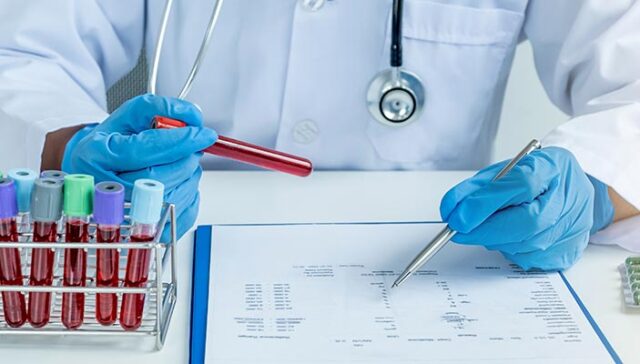
How Long Does It Take to Receive Drug Test Results? Turnaround Times, Process, & Factors
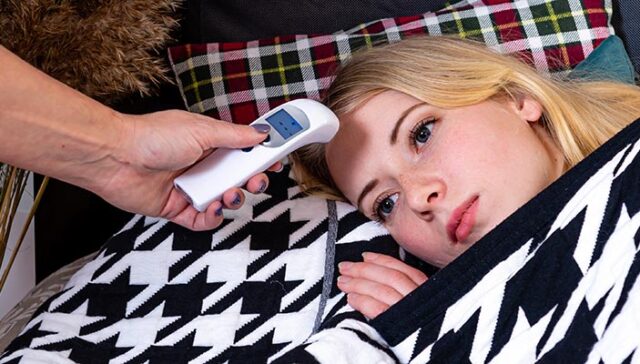
What Is Cotton Fever? Exploring the Symptoms, Causes & Treatment Options Available
Able To Change Recovery | Orange County Drug Rehab
Restore Balance and Embrace
A New Beginning
We’re here to be a beacon of hope and practical support in times of greatest need. For anyone seeking professional treatment for themselves or a loved one, we can help. Reach out to our team today to get started.
Frequently Asked Questions
About Orange County Drug Rehab
The right addiction treatment center may be different for everyone but look for accreditation, multiple levels of care, long-term support, a wide range of modalities, and in-network insurance coverage.
Our Orange County, California, alcohol rehab and drug treatment center is an outpatient facility with a supportive housing option. For daily outpatient treatment, bring clothes you’ll be comfortable in, a journal and pen, and any necessary medications.
Each client's individualized treatment plan will vary, but on average, the mental health programs last approximately 90 days, and the substance use programs last approximately 60 days. It is important to remember that treatment and recovery don’t end when formal programs are over. Ongoing support and treatment are critical to prevent relapse, provide hope, and continue building independence.
[1]HHS, SAMHSA Release 2022 National Survey on Drug Use and Health Data. SAMHSA. (2023, November 13). https://www.samhsa.gov/newsroom/press-announcements/20231113/hhs-samhsa-release-2022-nsduh-data
[2]U.S. Department of Health and Human Services. (n.d.). Any anxiety disorder. National Institute of Mental Health. https://www.nimh.nih.gov/health/statistics/any-anxiety-disorder
[3]U.S. Department of Health and Human Services. (n.d.-b). Bipolar disorder. National Institute of Mental Health. https://www.nimh.nih.gov/health/statistics/bipolar-disorder
[4]U.S. Department of Health and Human Services. (n.d.-c). Post-traumatic stress disorder (PTSD). National Institute of Mental Health. https://www.nimh.nih.gov/health/statistics/post-traumatic-stress-disorder-ptsd





